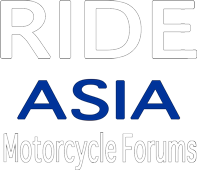prince666
Senior Member
- Joined
- Jul 3, 2013
- Location
- Shandong (China)
- Bikes
- CF 250 Jetlux. CFmoto 650 MT Honda CRF 1000 DCT Yamaha 125 YBR KG
Considered this a good post to read found on the web link here......
https://rideapart.com/articles/tips-on-becoming-a-better-motorcycle-rider
We all consider we are good and skilful riders ?? I for one try to read articles on advice on good riding techniques and I watch other riders, as this made me a better rider??? I HOPE SO ....
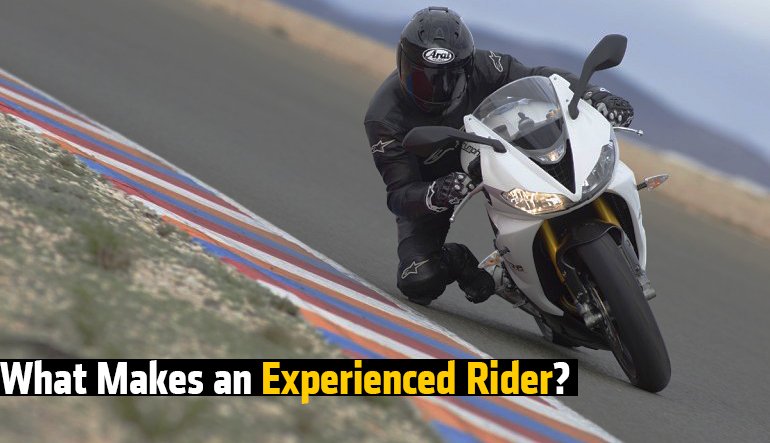
"What's the best bike for a beginner?" It's perhaps the most frequently asked question in motorcycle showrooms and in online forums. It's a necessary question, and one we've tried to answer here from time to time. But it got us thinking, what about experienced riders? What's the best bike for those who have crossed the invisible threshold between newbie and veteran? And what does it mean to be an experienced rider, anyway?
An experienced rider can handle and have fun on just about any bike (except a Katana), so finding the one that suits him or her, is a whole 'nother discussion. But the second question merits further investigation, and the answer comes in two parts: traits, and actions. Here are some tips on becoming a better motorcycle rider.
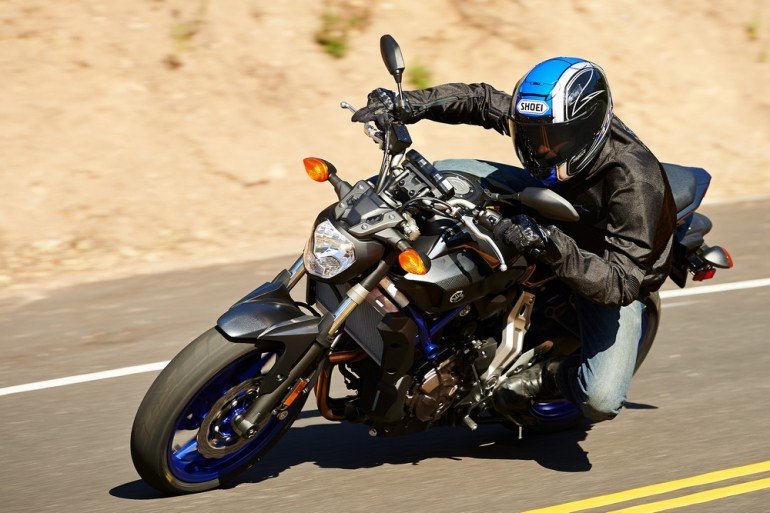
Traits To Make You A More Experienced Rider
Expert riders of any discipline become so because they embody a certain set of personality traits, at least while they're on the bike. These traits frame their attitude and approach to the sport, and allow them to take in the lessons that every ride can provide.
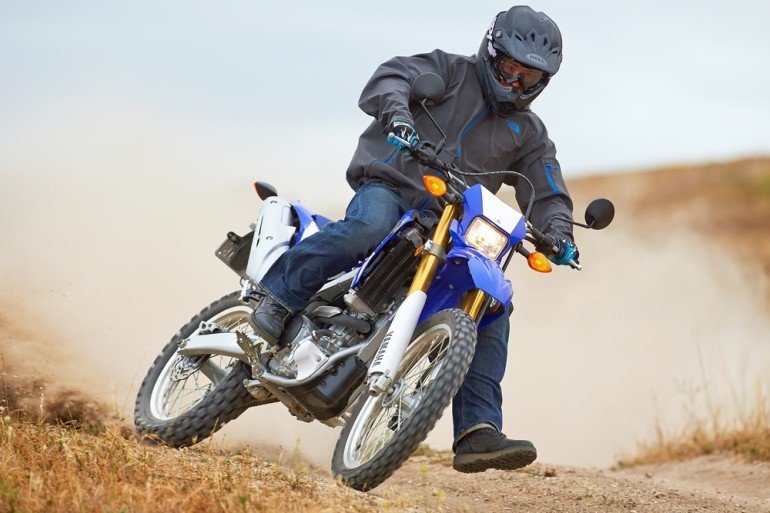
Actions
Becoming an experienced rider doesn't happen automatically, or by accident. It's more than a simple accrual of years or miles. It's a conscious and continual process, one that is carefully nurtured to maturity, and then maintained.
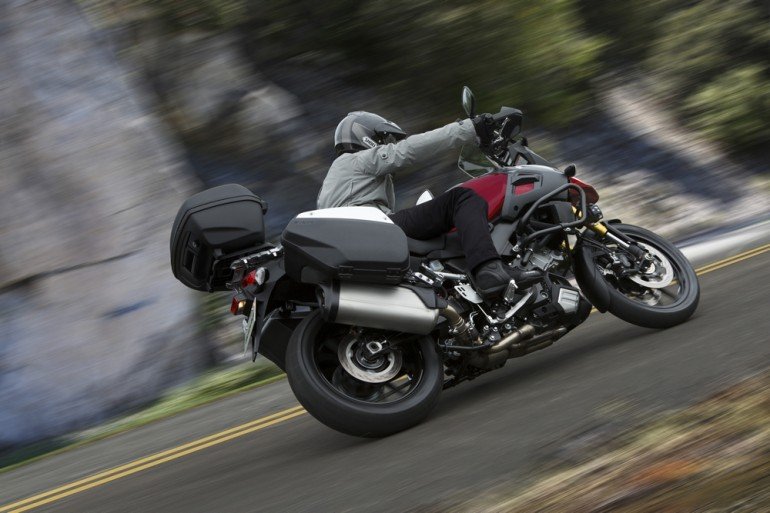
Conclusion
Becoming an experienced rider is a different process for everybody. It might take you longer than it took your buddy, for some or all of the reasons listed above. Don't get discouraged by that, and don't get in a hurry and end up riding over your head. Ride as well as you know how to ride, work at getting better, and keep at it, and you may find yourself being the one offering sage advice at a bike night.
Some interesting comments and points of view regarding the above post .....
https://rideapart.com/articles/tips-on-becoming-a-better-motorcycle-rider
We all consider we are good and skilful riders ?? I for one try to read articles on advice on good riding techniques and I watch other riders, as this made me a better rider??? I HOPE SO ....

"What's the best bike for a beginner?" It's perhaps the most frequently asked question in motorcycle showrooms and in online forums. It's a necessary question, and one we've tried to answer here from time to time. But it got us thinking, what about experienced riders? What's the best bike for those who have crossed the invisible threshold between newbie and veteran? And what does it mean to be an experienced rider, anyway?
An experienced rider can handle and have fun on just about any bike (except a Katana), so finding the one that suits him or her, is a whole 'nother discussion. But the second question merits further investigation, and the answer comes in two parts: traits, and actions. Here are some tips on becoming a better motorcycle rider.

Traits To Make You A More Experienced Rider
Expert riders of any discipline become so because they embody a certain set of personality traits, at least while they're on the bike. These traits frame their attitude and approach to the sport, and allow them to take in the lessons that every ride can provide.
- Calm - Experienced riders don't get excited about much. Sure, off the bike they may be the most outgoing, gregarious people you'll ever meet, but once they throw a leg over a few hundred pounds of metal and rubber, they're all business. Even some of the best stunt riders in the world are utterly serene while performing. They have to be, because if you allow yourself to get upset or overly worked up, you start making mistakes. And mistakes aren't something you can allow, when you're cranked over at triple digit speeds on the track or balancing a slow, high chair wheelie.
- Quick Thinking - An experienced rider is always ahead of the situation. His eyes are up, scanning the road and the approaching intersections, monitoring the behavior of other traffic and looking for apexes before a newer rider even knows they exist. A veteran rider knows how to take in and mentally sort through thousands of pieces of information at once, creating a constantly-updated situational awareness that keeps him out of trouble before it has a chance to happen. He'll avoid getting sideswiped by that SUV, because he's been watching him cheat out of his lane for the last half mile.
- Instinctual - On the occasion that something unanticipated does occur, the experienced rider knows how to handle it. He has the feel of his machine, and sufficient command of the controls to execute evasive maneuvers or make sudden corrections without having to think. When that mahogany coffee table fell off the open truck bed ahead of him, he'll have braked, swerved, downshifted and accelerated past the truck before the thought of imminent death could even go through his mind.
- Patient - Mistakes happen most often when riders get in a hurry. They rush a corner, try to pass a car at an inappropriate time, or try to beat a red light. They blast through an unfamiliar stretch of road trying to keep up with a buddy. Sometimes, they'll get away with it, but experienced riders know that it's usually not worth the risk. They'll lay back in traffic, open their following distances, and wait for opportunities to clear out of traffic. Having patience gives them time to make good decisions on the road, track or trail.
- Humble - Experienced riders know that they are human, fallible, and mortal. They know the limits of their machine, and of their skill set, and work hard not to put themselves in situations where either may be exceeded. They know that the old proverb "pride goeth before a fall" translates, in the motorcycle world, to "pride goeth before the crumpling of your machine against a guardrail and a visit to the hospital for a broken collarbone and a ruptured spleen."

Actions
Becoming an experienced rider doesn't happen automatically, or by accident. It's more than a simple accrual of years or miles. It's a conscious and continual process, one that is carefully nurtured to maturity, and then maintained.
- Variety - In the flying community, they say that there's a difference between flying for a thousand hours, and flying one hour a thousand times. The lesson contained there is that if you only do the same thing over and over again, it's unlikely you've learned much of anything. Plodding along on your bike for your daily commute is a fine thing, but it won't make you an expert, if that's all you do. Experienced riders seek out all sorts of different riding challenges, from twisty mountain roads, to long open stretches, to drag strips and road courses, to city traffic. They expose themselves to different bikes, riding styles and disciplines, to round out their skill set. Disciplines like riding on dirt can greatly improve bike control and let you know what it feels like to slide a tire.
- Practice - This goes back to being humble. Veteran riders know that skills can get rusty, so you'll find them practicing, periodically. They'll be out in a big parking lot doing max braking drills, slow, tight figure eights and the like. All the things they taught you in your MSF course (which you have taken, right?) need to be revisited from time to time. We're not just talking about the beginner course either, MSF offers well over a dozen courses for varying skill levels. Better still, go to a local track day, and practice everything at once.
- Study - Experienced riders study everything relevant to their sport. From their bikes, to their gear, to riding technique, you'll find them devouring everything they can find. They'll read tire spec sheets and reviews until their eyes bleed before deciding on a set. They've probably got a whole shelf in their office library devoted to books on riders, riding, and motorcycle technology. They know every single inch of their bike, and have put a wrench on more than half of it.
- Currency - No, not dollars, but how recently they've been riding. This may seem obvious, but riders ride. One of the great travesties of the way motorcycle endorsements are handled in the United States is that once you've earned it, you keep it, regardless of whether you've thrown a leg over a bike in the current decade. Experienced riders can become newbies again when they step away from riding for years at a time. While their previous expertise may make their return to form shorter and easier, they'd do well to exercise caution when getting back into it.
- Mileage - I left this until last on purpose, but there is no substitute for seat time. The human learning process requires repetition, and to ingrain all of those skills you need to be a proficient rider, you've got to spend a big amount of time doing the thing.

Conclusion
Becoming an experienced rider is a different process for everybody. It might take you longer than it took your buddy, for some or all of the reasons listed above. Don't get discouraged by that, and don't get in a hurry and end up riding over your head. Ride as well as you know how to ride, work at getting better, and keep at it, and you may find yourself being the one offering sage advice at a bike night.
Some interesting comments and points of view regarding the above post .....
- RyYYZ • 8 days ago On the traits side, maybe as a subset of "Humble", I'd say the ability to recognize, acknowledge and learn from your mistakes. Even the best riders make mistakes or do something stupid occasionally. With luck you will get away with it. For example, running too wide/tight in a corner and crossing into the oncoming lane. Any time that happens you should be taking a hard look at what led to that, because if you survived doing it unscathed it was only because of luck. And luck is not a good basis for safe riding.
- 21
-

zion RyYYZ • 7 days ago Very good point. Being able to acknowledge your mistakes and learn from them is important, whether riding or in most aspects of life.
- 3

Slacker RyYYZ • 6 days ago Good way to say that is, "Learn something from every ride." I always do a debrief after I go riding with buddies to figure out what I need to work on.
- 1

JR Newing RyYYZ • 5 days ago True "humility" means that you don't write an article telling people either what it takes to be an expert or "experienced" rider, or how to become one.
It means keeping your mouth shut unless someone asks you for your advice about a specific topic, always qualifying it with "well, that's how it seems to me based on my own experience, but you might find it different". Unless you are talking about some hard scientific fact that you know for sure. Like how many pistons are in a 4-cylinder engine.
Articles like this are the opposite of humility.
- 1
-

Pete Hitzeman JR Newing • 3 days ago *Clicks on article containing tips on motorcycling*
*Bashes article for containing tips on motorcycling*
Mmm hmm.
- 5

Piglet2010 JR Newing • 4 days ago W H O O S H !
- 1

eddi RyYYZ • 7 days ago Being humble is smart. Being humiliated means you weren't smart.
-
-

Gonfern • 8 days ago Great article. I would add VISION to that list. A good rider knows how to scan the road and the sides of the road for danger and never concentrate on one place too long. A good rider looks as far as possible, watching the tree line or telephone poles to anticipate which way the road is going. (I often get asked by other riders how I can maintain such a fast pace down roads I've never ridden, or how I knew there would be a slow car around the next turn...I see it through the trees) Most people get tunnel vision and target fixate. Also watch 10 cars in front of you on the highway, not just the one in front of you. Watch the drivers, not just the cars...this will tip you off to who sees you, who is paying attention, and who is clearly a distracted danger.
-
- 7
-

RyYYZ Gonfern • a day ago Good point. Also the use of peripheral vision - Keith Code discusses this quite a bit in "Twist of the Wrist II", IIRC.
-

Jack Meoph • 7 days ago I relearn how to ride almost every year. It's only right about now, early fall, that my skill set is back up to speed, after the rains, the tourists, the cold, etc. are gone and I've been putting in more seat time. Once my riding season is over, my skills degrade pretty rapidly. I'm talking about the skill set that lets you go at a good "Pace" without having your shoulders climb up to around your earlobes or wishing you had ordered those Depends from Amazon when there's a semi coming around a blind, uphill corner, at speed, and decides to share part of your lane (today's fun filled loop, which was actually pretty awesome overall). Instead of dropping a deuce like I might have in May, I just moved to the outside of the lane without missing a beat or yelling obscenities into my helmet. That's how I know I'm back in the groove.
-
- 6

Michael Howard • 7 days ago I would add than an experienced rider — and one of the ways to become an experienced rider — is to always be conscious of what you're doing. You make an effort to understand why the bike handles the way it does in different situations. You're aware of your braking points and lines through corners, always trying to improve your skills. "Practice" doesn't only happen in empty parking lots — it should happen every time you throw your leg over the bike.
- 5

Slacker • 6 days ago For my contribution, experienced riders are deliberate. No wasted movements. They see what needs to happen, and make it happen, whether that be lining up the next late-apex, or setting themselves up for a clearer lane through traffic.
- 4
-

Stuki Slacker • 6 days ago I was thinking the same. Was going to say "decisive." But deliberate is perhaps better.
Regardless, as one gains experience, both with one's machine and with riding in general, more and more situations become been-there-done-that. Hence gets responded to without hesitation. When riding, not taking an action (as in spending/wasting precious time thinking about what to do) can, in many situations, be just as detrimental as taking the wrong action.
The same can be said for taking half-assed, not really committed action. Going into a corner a bit hotter than you really should, and sorta-kinda wodering whether you should be sorta-kinda breaking, or maybe sorta-kinda-maybe turn in....... before you know it, you're in the oncoming lane. Do that enough times, preferrably on a track with runoff, and you'll start realizing that while there may be a time for figuring out the ideal way to approach a given corner, by the time you're in too hot (for your own comfort), you have to DO something. Not ponder what to do, like the proverbial deer frozen in the headlights.
- 2
-

James Stuki • 6 days ago Yep - agree. Good riders decide on an action an execute it. Whether its a lane change, gear change, decision about speed or lean angle into a corner etc. Second guessing yourself is a trait of a newbie and one that needs to be fixed rapidly if you don't want to end up as road kill.
-

Lisa Glover Slacker • 5 days ago Excellent choice of words. I used to have a flight instructor that swatted your hands if you went the wrong way in setting a control. He wanted you to be deliberate with your actions such that no time was wasted...there needed to an economy of motion. Same thing on a bike...minimal control inputs to get the job done... Right move at theright time.
-
-

Timothy Gray • 7 days ago A good rider is always looking to perfect their skills, reading books (you have read twist of the wrist right?) thinking of the mistakes they made on the last ride... (I did not see that small sky blue Honda until I crossed the road, Safe distance but still bothered that I missed spotting him.) and more. Never ever mistake someone who has been riding a long time as "experienced" I know guys that have ridden 20+ years and have no clue about countersteering, think that helmets are unsafe, and swear that intentionally dumping a bike at speed is safer than trying to brake and avoid the accident. These guys are actually long term newbies not experienced riders.
Always be learning, because that is how you stay on top of your game.
-
